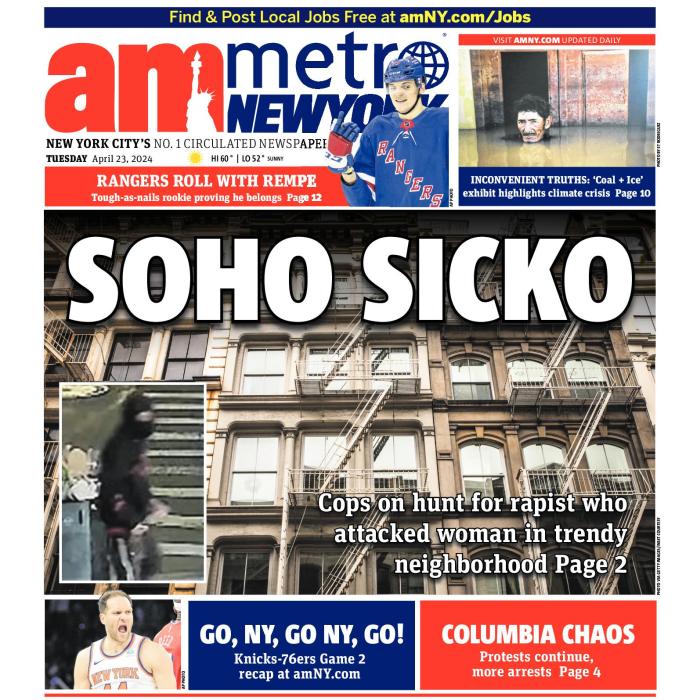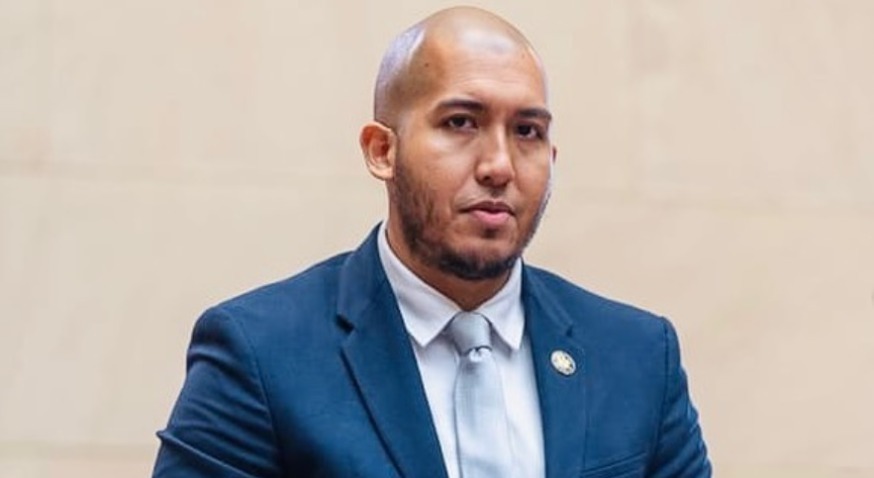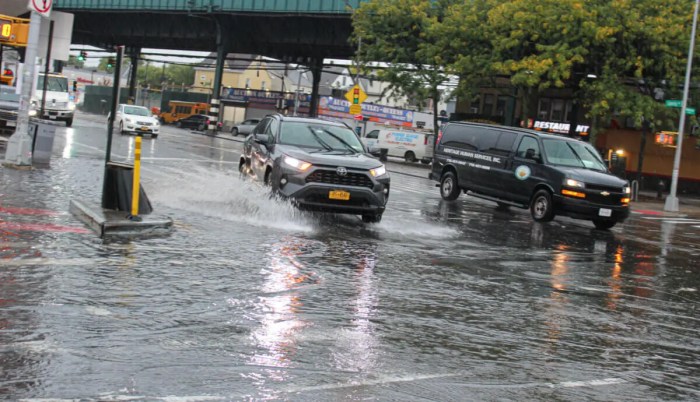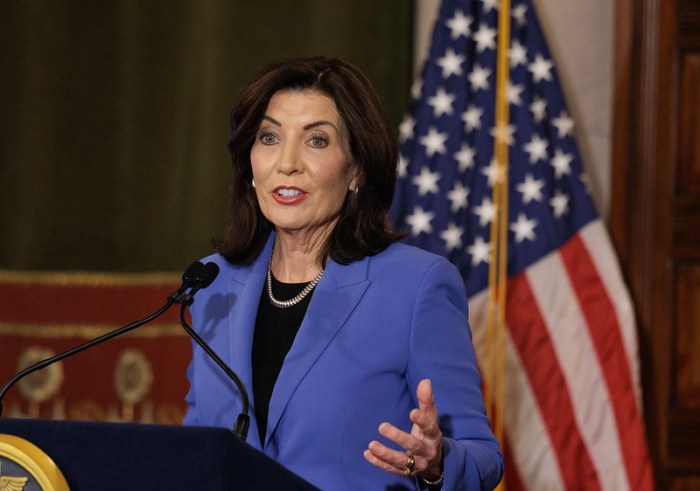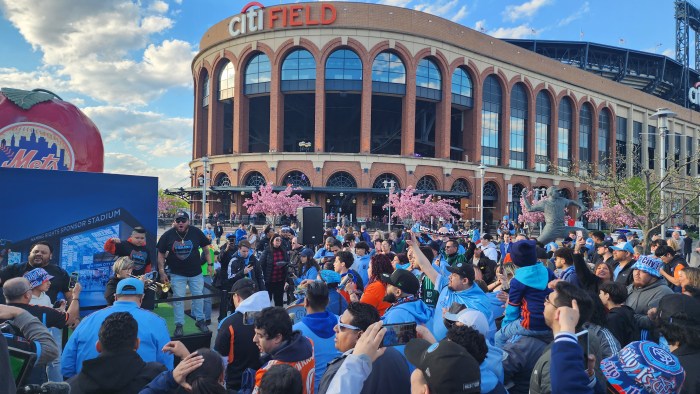New York politicians and civil rights advocates on Monday expressed outrage with the Trump administration’s second attempt at an executive order to institute a travel ban on six Muslim-majority countries and made it clear that they would fight the motion.
“A watered down ban is still a ban,” said Senate Minority Leader Chuck Schumer in a statement. “Despite the administration’s changes, this dangerous executive order makes us less safe, not more, it is mean-spirited and un-American. It must be repealed.”
The new travel ban that Trump signed on Monday differs from the first in its execution and scope. It will exclude Iraq from the original countries included in the order, but will keep a 90-day ban on travel to the United States by citizens of the other six Muslim-majority nations that were originally listed: Iran, Libya, Syria, Somalia, Sudan and Yemen, senior administration officials said.
The initial executive order, signed on Jan. 27, was instituted immediately with little warning and led to a sloppy rollout, nationwide protests and mass confusion at airports before it was eventually blocked through multiple court rulings. This second order will go into effect on March 16 to giving agencies more time to prepare.
House Speaker Paul Ryan said the revised order “advances our shared goal of protecting the homeland,” but rebuke from Democrats in the city was swift.
“If the President took a quick look around his own hometown he would see that we don’t need to discriminate to be safe,” said Mayor Bill de Blasio in a statement. “In fact, New York City’s inclusiveness helps make this the safest big city in America. Thankfully, the stroke of a pen in Washington won’t change our New York values and it won’t make us any less proud to be the ultimate city of immigrants.”
Omar Jadwat, director of the ACLU’s Immigrants’ Rights Project, said the new order is a “scaled-back version that shares the same fatal flaws” and will face scrutiny in courtrooms over perceived religious discrimination.
“The only way to actually fix the Muslim ban is not to have a Muslim ban,” said Jadwat in a statement. “Instead, President Trump has recommitted himself to religious discrimination, and he can expect continued disapproval from both the courts and the people.”
New York Attorney General Eric Schneiderman said his office was “closely reviewing” the new order and issued similar legal threats.
“While the White House may have made changes to the ban, the intent to discriminate against Muslims remains clear,” Schneiderman said in a statement. “This doesn’t just harm the families caught in the chaos of President Trump’s draconian policies — it’s diametrically opposed to our values, and makes us less safe.”
Trump’s order “vilifies immigrants,” which “fuels divisiveness in our communities and abroad,” charged City Council Speaker Melissa Mark-Viverito, one of Trump’s fiercest opponents in the city, in a joint statement with Brooklyn Councilman Carlos Manchaca, who chairs the council’s Committee on Immigration.
“Over the last week, President Trump has attempted to disguise his harsh and bigoted immigration policies with a populist rhetoric that deceitfully signals a shift in his tone — but don’t be fooled,” they said. “The executive order put forward by the administration today may use different words to describe a Muslim ban, but their intentions remain the same: to normalize discrimination based on religion and ethnicity.”
Just as with the first attempt, and with nearly every move Trump makes, the travel ban highlights the stark divide between Democrats and Republicans. New York City’s only Republican in Congress, Rep. Dan Donovan, believes the measure is in “America’s national security interest,” adding in a statement that the ban “includes countries that are state sponsors of terror or have unstable governments.”
But refugees from the six countries are already subject to “extreme security vetting” and the ban puts them in “grave risk,” according to Mark Hetfield, the president and CEO of the Hebrew Immigrant Aid Society.
“There is nothing ‘temporary’ about leaving innocent families stranded and at grave risk while their government-issued security clearances expire, Hetfield continued in a statement, “or crippling America’s domestic refugee resettlement infrastructure while fixing a system that is not broken.”
